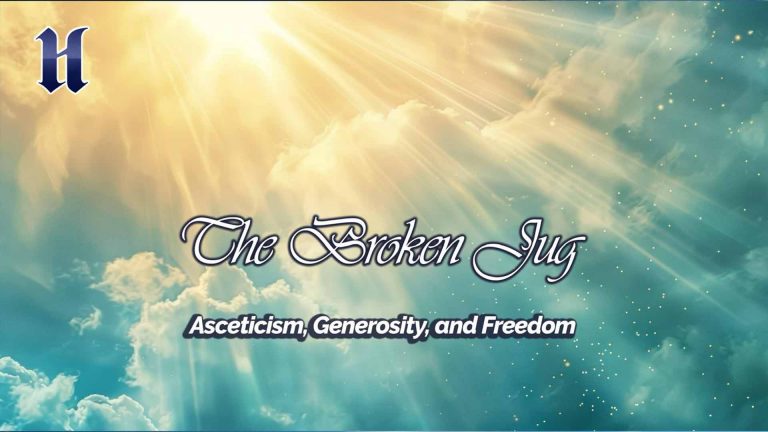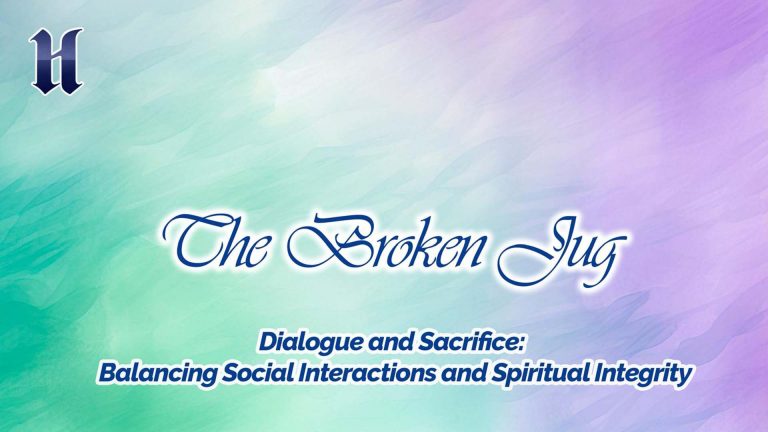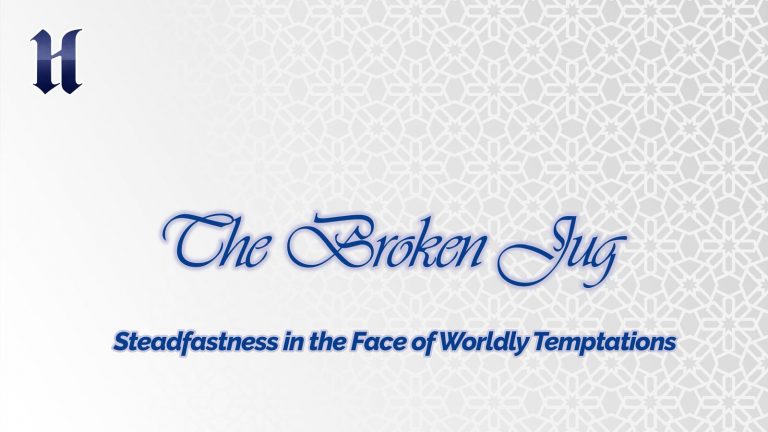İçindekiler
Every action performed in prayer (salat), from its obligatory acts and necessary duties to its recommended practices and even its etiquettes, along with every form of dhikr within it, is directed toward the essence of prayer and embodies profound meanings. The term dhikr encompasses all Quranic verses, prescribed utterances for praising and glorifying God, and the recommended supplications recited during prayer. These actions and dhikr have been designated by the Lawgiver as integral components of prayer, selected for us to grasp the full significance of prayer.
Let’s consider the blessed “Subhanaka” supplication, recited at the commencement of prayer, as an example. This supplication’s expressions of glorification, praise, and affirmation of God’s unity are seen as the spiritual backbone of prayer.
Typically, when discussing the essential elements of prayer (salat), we refer to the basic acts that make up the prayer, such as the opening declaration of God’s greatness (takbir, saying Allahu Akbar), standing (qiyam), reciting from the Qur’an (qira’ah), bowing (ruku’), prostrating (sujud), and the final sitting (tashahhud). Although these acts are not collectively mentioned in one place in the Qur’an, they are referred to in segments across various verses and are thoroughly detailed in the Sunnah, both verbally and through demonstration. Jurists have, through an examination of the textual references to prayer, defined the conditions and pillars of prayer as a whole and have elaborately detailed them in jurisprudential texts. The pillars they emphasize provide structure and pattern to prayer, illustrating its proper execution.
Alongside its physical form, prayer encompasses a spiritual dimension and depth, manifested in both the actions undertaken and the dhikr voiced during the prayer. The profound meanings of the Qur’anic verses recited in prayer stand as a notable topic on its own. As the Divine word, the Qur’an remains a perpetual miracle, addressing every era’s understanding without losing relevance. Similarly, the supplications, glorifications, praises, declarations of God’s greatness, and other forms of dhikr recited during the prayer hold deep significances. Essentially, prayer is an act of dhikr from start to finish. It begins with the takbir, transitions between postures are marked by takbir, glorifications (tasbih) during bowing and prostration are repeated, and praises (hamd) to Allah are offered upon rising from bowing and while standing—all underscoring this reality.
The opening takbir and the following “Subhanaka” supplication immediately anchor us to the spiritual pillars, essence, and meaning of the prayer. However, the key lies not merely in the mechanical repetition of these remembrances and supplications but, more critically, in reciting them with a comprehension of their meanings, feeling and experiencing them, and being emotionally stirred by them.
In the past, as I occasionally observed some of Bediuzzaman’s early followers, I witnessed how they prayed with profound concentration. They raised their hands to their ears, reciting the takbir a few times until the meaning of the takbir and the essence of the prayer reverberated within their conscience. This practice helped them find their inner voice and detach from everything else. Their efforts to achieve this state are clear, and upon reaching it, they commence the prayer by declaring “Allahu Akbar” and folding their hands at this pivotal “catching moment”. Trying to imitate this process superficially, without genuine emotion, is a mistake.
The true essence lies in performing these actions and prescribed utterances sincerely, truly feeling and experiencing them from within. It involves the ability to negate oneself and step away at the beginning of the prayer. If the “self” remains obstinate, spiritual eclipses similar to those of the sun and moon occur, blocking the perception of Allah. Indeed, prayer is a form of worship designated for self-effacement, to listen to Allah, and to ascend spiritually.
God, the Transcendent and Holy, Beyond All Imperfections
At the beginning of our prayer, as we elevate Allah with the declaration “Allahu Akbar”, we move into the “Subhanaka” supplication. This initial phrase, “سُبْحَانَكَ اَللّٰهُمَّ” (Subhanaka Allahumma), serves to praise and sanctify Allah, recognizing His supreme purity and transcendence beyond any form of polytheism, partners, weaknesses, and any flaws or shortcomings that might diminish His splendor and perfection. It affirms that He is the Sole Deity, with everything else essentially reflecting merely the shadow of His existence’s shadow, as interpreted through the insights of Muhyiddin Ibn Arabi and Rumi. This viewpoint underscores a deep metaphysical understanding that all of creation, in its entirety, cannot fully encompass or reflect the boundless scope of His sublime attributes.
Through the lens of interpreters like Muhyiddin Ibn Arabi and Rumi, one might view existence as a collection of illusions and imaginations. This standpoint, however, diverges from the interpretations of existence as understood by Imam Rabbani, Bediuzzaman Said Nursi, and Al-Ghazali, as well as the broader Sunni doctrine. According to Sunni scholarship, the essence of all things is but a reflection of the Divine names. Existence, in this view, serves as a mirror to the Divine names, revealing and manifesting them.
The ability to discern the Divine names manifested in the world and to understand the true nature of existence requires profound insight. Without this depth of perception, individuals risk a form of blindness, falling prey to optical illusions and unable to recognize the true essence of things, thereby confusing metaphorical constructs for reality. They mistakenly attribute real existence to metaphorical entities. However, the phrase “Subhanaka Allahumma” represents a significant shift in perspective. It encapsulates the profound glorification and sanctification of the Divine, inviting contemplation of these rich meanings and highlighting the correct understanding of existence. This acknowledgment serves as a corrective lens, offering a way to see beyond the superficial and grasp the deeper spiritual truths embedded within the fabric of existence.
Worthy of All Praise and Gratitude
Following the act of glorification in the “Subhanaka” supplication, we express our praise and gratitude to Allah with the phrase وَبِحَمْدِكَ (wa bihamdika). According to Bediuzzaman, “Subhan Allah” manifests Allah’s majesty, through which we acknowledge His uniqueness and oneness. In the act of praising (hamd), there’s a manifestation of beauty, signifying the singularity of Allah. Bediuzzaman interprets the concept of Oneness (Wahdaniyat) as revealing Allah’s universal presence across the universe, demonstrating His greatness and majesty, and simultaneously benefiting all of creation through the manifestation of His mercy and guidance. However, the manifestations of singularity and beauty are received by each being based on their individual capacities and characteristics. Thus, by saying “SubhanakAllahumma wa bihamdika”, one acknowledges both the majestic and beautiful manifestations of Allah, along with His mercy and compassion.
While there are varied interpretations regarding the manifestations of His Oneness and Singularity, detailed discussion on this topic is beyond our current scope. A person uttering “SubhanakAlahumma wa bihamdika” should aim to bridge these two perspectives, seeking to understand their integral connection.
Moreover, the Qur’an features seven surahs that begin with glorification (tasbih) and five that begin with praise (hamd), highlighting the deep importance of these forms of expression. In addition, a hadith from Prophet Muhammad (peace be upon him) emphasizes the significance of glorifying and praising Allah: “Two phrases are light on the tongue, heavy on the scale, and beloved to the Merciful: ‘Subhan Allah wa-bi hamdihi’ and ‘Subhan Allah Al-Azim.'” These phrases, though easy to say, hold immense weight, carrying no sin, fault, or burden in the Hereafter that they cannot outweigh. Whatever is placed on one side of the scale, these words on the other will tip the balance. However, it is essential to understand that the true value of reciting these phrases does not lie in their rote repetition but in saying them with awareness, profound contemplation, and sincere emotion.
Source of Goodness and Blessing
Following the expressions of glorification and praise, we articulate “وَتَبَارَكَ اسْمُكَ“, translating to “How blessed and exalted is Your name”. This proclamation affirms the supreme stature of the Almighty’s name as a beacon of prosperity and benediction for us. Although the term “mubaraq” might be employed to convey this sentiment, its application diverges slightly. A more precise depiction would utilize terms such as “muqaddas” (sacred, sanctified), “mubajjal” (exalted), and “munazzah” (transcendent). In this context, the Almighty is depicted as being beyond all forms of maladies, poverty, necessities, flaws, and other afflictions characteristic of creation, as well as anything incongruous with His Essence and dignity; He is transcendent and elevated. Concurrently, He is depicted as the source and fountain of blessings. For example, at the outset of Surah al-Furqan, it is declared: “Blessed is He Who sent down the Criterion upon His servant that he may be a warner to the worlds.”[1] Given that Surah al-Furqan pertains to the Qur’an, and through the Qur’an, the Almighty’s blessings are bestowed upon the earth, enabling people to access the immense blessing of the Qur’an, the surah commences by highlighting the Divine Essence as a source of blessing, His loftiness, and His transcendence. The term “tabâraqa” recurs in various verses throughout the surah.
The phrase “وَتَبَارَكَ اسْمُكَ” specifically mentions the blessedness of Allah’s noble name, rather than Allah Himself directly. Here, I prefer not to engage in the theological discourse on whether Allah’s names are synonymous and identical with His Essence or distinct from it. The Divine Essence is what is articulated through His beautiful names. Niyazi Misri eloquently states: “To the knower, in objects appear the names / In all names, the Named is seen.”
Possessor of Greatness and Majesty
The phrase “وَتَعَالٰى جَدُّكَ“, translating to “Your majesty and dignity are exalted, very high”, deeply acknowledges Allah’s supreme status and inherent transcendence, a notion fully captured by one of His names, Al-Muta’ali. This name, Al-Muta’ali, denotes Allah’s supreme elevation and His transcendence beyond all. It stands as a declaration of Allah’s unparalleled greatness and exalted stature. Devotees of Allah, in their spiritual practices, frequently call upon Allah’s name Al-Muta’ali in their prayers, pleading: يَا مُتَجَلِّي اِرْحَمْ ذُلِّي يَا مُتَعَالِي اَصْلِحْ حَاِلي “O Manifestor, have mercy on my humility; O Exalted One, improve my state!” This request is a sincere expression of longing for Allah’s compassion and a wish for the enhancement of one’s situation, recognizing His capability to transform and uplift.[2]
The “Subhanaka” supplication culminates with the affirmation وَلاَ اِلٰهَ غَيْرُكَ, through which we profess: “O Allah, there is none worthy of worship but You (Mâ’bud-u bi’l-hak), no rightful goal of devotion but You, and there is none to be sought-after but You (Maksud-u bi’l-istihkak). How then can I turn to any other door? Turning away from all else, I turn towards You with all my heart, seeking refuge in Your care and guardianship, and I enter into Your mercy and forgiveness.”[3]
A Unique Nearness Within Closeness
When an individual hears the call to the prayer (Adhan), marking the onset of their prayer time, it signifies the commencement of a spiritual journey towards deep concentration and devotion. The call to prayer, particularly when delivered with a touching and melodious voice by the muezzin (caller), has a profound effect, evoking emotions and a sense of reverence, deepening the impact of this sacred summons. Following this, the act of making ablution represents a further step towards spiritual readiness, symbolizing physical and symbolic purification in preparation for standing before Allah. Entering the mosque and immersing oneself in its tranquil and sanctified atmosphere marks another significant step in this preparatory journey. Engaging in voluntary and sunnah prayers before the obligatory prayer further primes the individual for the congregational worship to come, each step enhancing readiness for a prayerful stand before Allah, with full awareness and deep engagement of both senses and consciousness.
The initial declaration of takbir that marks the commencement of the prayer, followed by the recitation of the “Subhanaka” supplication, and the subsequent steps in the prayer process, all culminate in the act of prostration. This act represents the pinnacle of the prayer, symbolizing an unparalleled intimacy with Allah, a special closeness that is unique within the closeness that prayer already offers. The Prophet Muhammad (peace be upon him) emphasized that a worshipper is at their closest to Allah during prostration, advising believers to make ample supplications in this moment. Prostration thus emerges as a profound moment to seek the Divine mercy, with worshippers praising Allah with “Subhana Rabbiyal-A’la” (Glory be to my Lord, the Most High). The spiritual journey initiated with “SubhanakAllahumma”, praising Allah, progresses into prostration, the moment of deepest connection to the Divine.
Despite the importance of forms and rituals, the essence transcends mere outward expressions, urging the worshipper to deeply internalize and manifest these spiritual truths within their conscience.
May the Lord of the Worlds enable us to truly perceive and embody the spirit and essence of prayer in our souls. Ameen!
[1] Surah al-Furqan, 25:1.
[2] In the context of the supplication, “O Manifestor, have mercy on my humility; O Exalted One, improve my state!” the plea to “have mercy on my humility” signifies a request for kindness, understanding, and compassion towards the individual’s acknowledgment of their own insignificance and lowliness in comparison to the Divine greatness of Allah. It’s a profound expression of humility and submission, seeking mercy not despite but because of one’s recognition of their humble state.
[3] This declaration is not merely an expression of monotheism but a profound acknowledgment of Allah as the Sole Being of worship, devotion, and pursuit. It signifies a total and unconditional turning towards Allah, seeking His protection, mercy, and forgiveness, with a renunciation of all other allegiances or dependencies. This profound commitment reflects a complete trust in Allah and an aspiration to immerse oneself in His infinite mercy and forgiveness.






